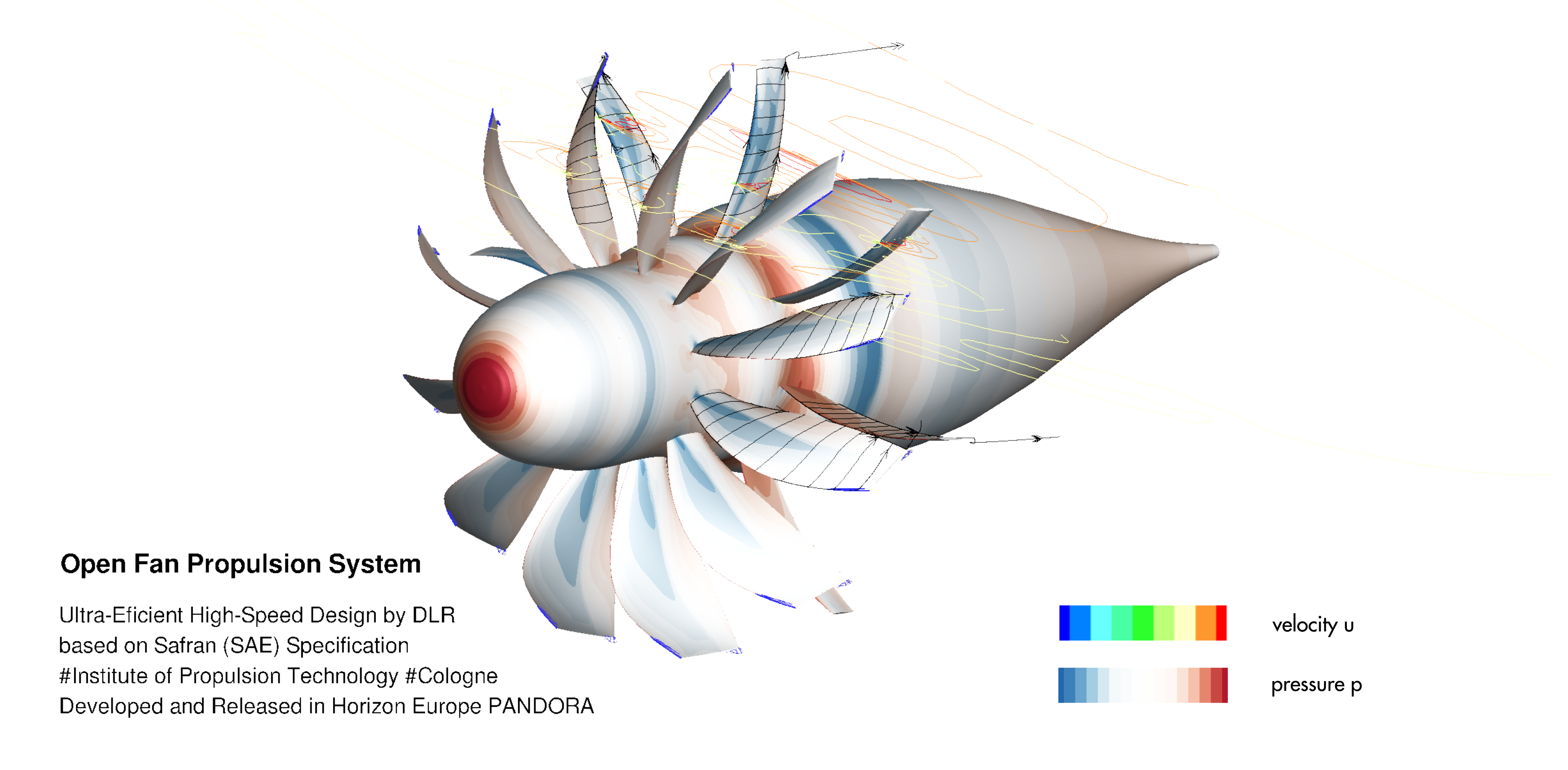
Our mission
Empowering Sustainable Aviation: The PANDORA project is dedicated to pioneering advancements in open rotor aircraft engine technologies. Our mission is to harness the transformative potential of contra-rotating open rotors (CROR) and unducted single fans (USF) to significantly reduce the environmental impact of aviation. By developing engines that combine the speed and performance of turbofans with the fuel economy of turboprops, we aim to lead a new era of sustainable air travel. Our commitment extends to delivering solutions that reduce CO2 and NOx emissions and minimize noise pollution, thus contributing to the global efforts towards achieving a more sustainable and eco-friendly aviation industry.

Our mission
Empowering Sustainable Aviation: The PANDORA project is dedicated to pioneering advancements in open rotor aircraft engine technologies. Our mission is to harness the transformative potential of contra-rotating open rotors (CROR) and unducted single fans (USF) to significantly reduce the environmental impact of aviation. By developing engines that combine the speed and performance of turbofans with the fuel economy of turboprops, we aim to lead a new era of sustainable air travel. Our commitment extends to delivering solutions that reduce CO2 and NOx emissions and minimize noise pollution, thus contributing to the global efforts towards achieving a more sustainable and eco-friendly aviation industry.

Innovating for Efficiency and Sustainability:
Innovating for Efficiency and Sustainability:
The open fan concept represents a paradigm shift in aviation technology, promising to significantly reduce CO2 and NOx emissions by harnessing the inherent efficiency of open rotor engines. By eliminating nacelle drag and weight, these engines offer a viable alternative to traditional high by-pass ratio ducted fans, aligning with global efforts to mitigate aviation’s environmental footprint.
Bridging the Gap Through Research and Collaboration:
Bridging the Gap Through Research and Collaboration:
Despite the appealing advantages of open rotor engines, their journey from concept to market faces technical challenges, notably in noise reduction and the translation of theoretical efficiencies into real-world applications. The PANDORA project aims to close this gap through rigorous research, leveraging advancements in turbomachinery simulations to refine and validate the design and operational parameters of USF engines.
Creating a Foundation for Future Innovation:
Creating a Foundation for Future Innovation:
A cornerstone of our mission is to establish a comprehensive experimental and numerical database for USF configurations. This resource will provide an invaluable foundation for the global research community, enabling the validation of simulation tools and fostering further innovation in open rotor technologies.
Delivering Transformative Technologies:
Aligned with the objectives of the HORIZON-CL5-2022-D5-01-12 initiative and the principles outlined in H2020-ARTEM, PANDORA is committed to delivering transformative technologies that reduce aircraft noise and emissions. Our multi-disciplinary approach encompasses the development of model-based scaled prototypes and the integration of novel numerical tools to support the design and implementation of climate-neutral aircraft configurations.

Contributing to a Sustainable Future:
Contributing to a Sustainable Future:
By targeting a reduction in fuel consumption and a significant decrease in perceived noise levels, PANDORA addresses two of the most pressing challenges in contemporary aviation. Our project is not only about advancing the technical boundaries of aircraft propulsion but also about contributing to the achievement of the ACARE Flightpath2050 goals and ensuring that air travel becomes more sustainable without compromising efficiency or convenience.
Empowering Industry and Academia:
Empowering Industry and Academia:
Through the creation of high-quality experimental data and the development of agile, accurate numerical tools, PANDORA aims to empower both industry and academia. By facilitating the entry into service of open rotor engines and fostering a collaborative ecosystem, we seek to extend European competitiveness in the aviation sector and reinvigorate academic research focused on sustainable propulsion technologies.